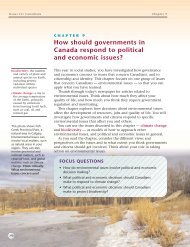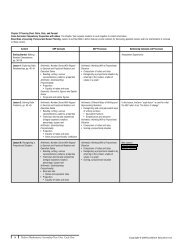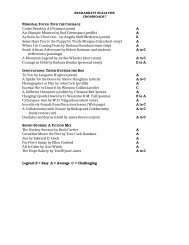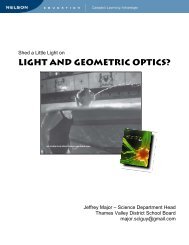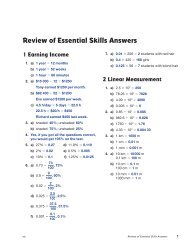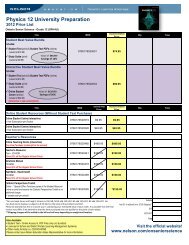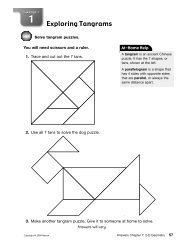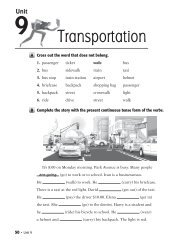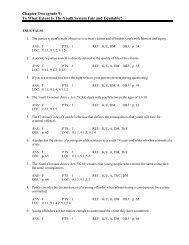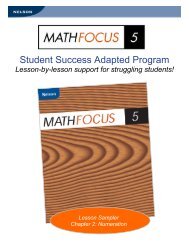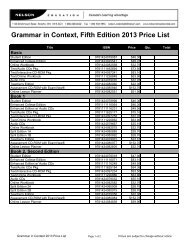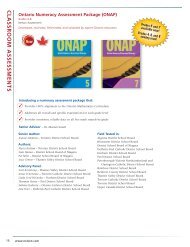PRE-PUBLICA TION EDITION - Nelson Education
PRE-PUBLICA TION EDITION - Nelson Education
PRE-PUBLICA TION EDITION - Nelson Education
Create successful ePaper yourself
Turn your PDF publications into a flip-book with our unique Google optimized e-Paper software.
the nature of scienceCharacteristics of ScienceScience is both a collection of what we know and howwe know about the world around us—both a body ofknowledge and a process for acquiring knowledge.• Science starts from observations that lead toquestions. The natural world is full of fascinatingphenomena that raise questions in the curiousmind. These questions form the basis of scientificinvestigation.• Scientific knowledge can come from observation.Observations that are made and recorded ina structured, organized fashion can provideevidence that leads to knowledge andunderstanding. Empirical knowledge includesknowledge gained in the process of scientificinquiry, as well as observations and knowledgegained from Aboriginal peoples, as part of theirtraditional ecological knowledge and wisdom(TEKW).• Science is done differently in different cultures. Themethods used to conduct scientific investigationsmay vary depending on social and culturaltraditions and practices. However, the purpose ofscientific inquiry remains the same: to understandand explain the natural world.• Scientific knowledge is tentative but reliable.Scientific hypotheses are ideas to be tested.Repeated testing that produces consistent resultscan lead to laws and theories that help to describeand explain the natural world. Current laws andtheories are reliable because of extensive testing,but they can change if new evidence suggests thata change is necessary. In science, a conclusion isnever regarded as final.• Science is progressive. Scientific knowledge buildson existing knowledge. Our understanding ofthe natural world grows as new knowledge isacquired and as new technologies enable furtherscientific investigation.• Science is repeatable, self-correcting, and not basedon authority. A hypothesis should be tested insuch a way that the same test can be repeatedby different people. This way, inconsistenciescan be identified and theories can be updatedto explain new observations. Modern sciencedoes not accept the proclamations of famousindividuals or people in positions of political orsocial authority unless they can provide credibleevidence to support their claims.Misconceptions about ScienceMany people misunderstand what science is and whatit can do. Some of the most common misconceptionsare briefly described here.Misconception #1: All scientists follow ASINGLE scientific method.Many people think that there is one “scientificmethod” that all scientists follow to conduct research.This method is usually described as a series of steps:1. A scientist asks a testable question and developsa hypothesis.2. The scientist designs and carries out an experiment,makes observations, and analyzes them.3. The scientist draws a conclusion based on theevidence and compares the conclusion with thehypothesis to determine whether the evidencesupports the hypothesis.NEL The Nature of Science 649



